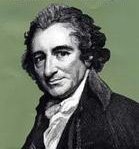Where There's Smoke
This is a topic I've wanted to blog about for a while now. The issue of smoking bans which are now found in 17 different states and 461 towns and cities, according to an Associated Press story in Sunday's Peoria Journal Star.
I'm a bit divided on this issue. Since I'm a non-smoker, I believe it would be great to go anywhere and not be bothered by smoke emitted by tobacco. However, what right does the government have to dictate to business owners to what their customers and employees may do. More specifically, I'm referring to restaurants and bars.
I can understand locations to where individuals have to travel to take care of certain needs and business, i.e. a county courthouse, grocery store, post office. But as for bars and restaurants, this is more of a want rather than a need, at least for a customer. If there is a tavern with a number of cigarette smokers, no one is forcing you to go in. If you don't like the smoke, then don't go in. If tavern owners knew that smoke-free bars were all the rage and huge money makers, we'd see a few more of them by now. This should be up to the tavern owner, since most of his/her clientele are most probably smokers.
During 1933 to 1945, Nazi Germany under the rule of Adolf Hitler enacted a smoking ban. The reason was to foster the health of Germans; moreover, Hitler wanted a master race of purity and quality. It is postulated that Hitler feared that intellectuals, who often smoked in those days, would assemble and would think up ideas not conductive to what Hitler had in mind for his 1,000 year Reich. It was recorded that smoking rates increased during the first 6 years of Hitler's rule, most probably it served as a form of resistance. The tobacco supporters often cite this fact, however, smoking bans of today have nothing in common with Hitler's ban. It is more about protecting the health of non-smokers.
I believe the best compromise is to allow exempt status for certain businesses, such as bars and restaurants; smoke shops for sure. Let these business owners decide what they wish to have; necessitate that proper signage is displayed so patrons will know what type of establishment to expect.
Common Sense of it All: It seems little by little, we lose more of our freedoms and rights. We now have to wear seat belts in our own cars, which is our personal property. Children must wear helmets on bikes and sit in car seats. While these are sensible and practical things to do, we are being legislated to do it. Careful. Today it's a total smoking ban in all public places, tomorrow it may be your home.

